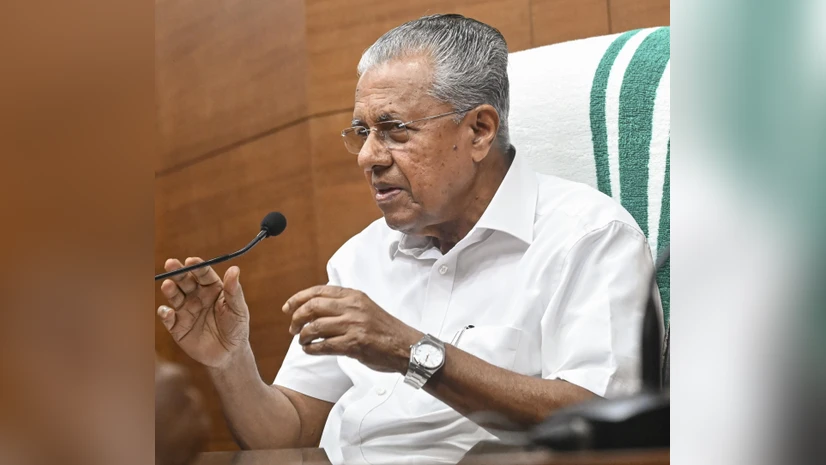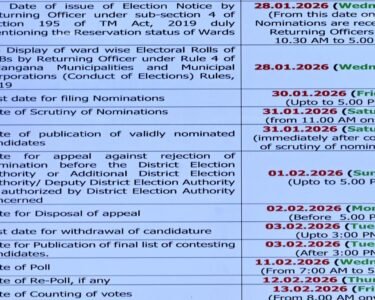The Kerala government has announced that it will temporarily suspend the implementation of the Centre’s PM SHRI (Pradhan Mantri Schools for Rising India) scheme and has constituted a seven-member cabinet sub-committee to thoroughly review the deal it had signed. Chief Minister Pinarayi Vijayan stated that no further action will be taken till the committee submits its findings, which will then determine the state’s final position and be communicated to the Union government.
Background: How Did We Get Here?
Until recently, Kerala had been reluctant to join the PM SHRI initiative, citing concerns over its link to the National Education Policy 2020 (NEP) and issues of educational autonomy. Opposition from the ruling coalition’s partners, especially the Communist Party of India (CPI), was strong.
Eventually, the state signed a Memorandum of Understanding (MoU) with the Centre to join PM SHRI — reportedly influenced by the withholding of large central education funds.
But with internal dissent mounting and questions raised about the process and implications, the government has now hit the brakes.
What the Sub-Committee Will Examine
The newly formed review panel includes ministers from key portfolios: Education (V. Sivankutty), Revenue & Housing (K. Rajan), Public Works (Roshy Augustine), Law & Industries (P. Rajeev), Agriculture (P. Prasad), Electricity (K. Krishnankutty) and Forest & Wildlife (A. K. Saseendran).
It has been tasked with evaluating the MoU in full: the terms, the financial and policy implications, the autonomy of the state’s curriculum and textbooks, the interplay with NEP, and whether Kerala’s educational traditions are being preserved. The Chief Minister clarified that the state will await the panel’s report before taking any further step.
Financial & Policy Stakes
One of the drivers behind joining, then pausing, the scheme is money. Central funds for education programmes in Kerala were reportedly withheld, prompting the state to reconsider its position.
On the policy front, Kerala has long prided itself on its own public-education model — unique in its textbooks, pedagogy and local control. Critics of PM SHRI argue that it promotes centralisation, and may align with NEP mandates that the state opposes. The Times of India+1
Education Minister V. Sivankutty had defended the MoU earlier, stating that Kerala retains the freedom to decide curriculum and textbooks, and that joining the scheme did not equal adopting NEP wholesale.
Political Ripples and Coalition Friction
The decision has stirred internal unrest within Kerala’s ruling Left Democratic Front (LDF). CPI ministers have voiced outrage at the MoU being signed reportedly without full cabinet consultation, threatening to skip cabinet meetings.
The Chief Minister convened meetings to calm the situation, but unresolved tensions pushed the government to pause the rollout and await the review committee’s findings.
What the Minister’s Statement Says
In his press briefing, CM Vijayan emphasised that the decision to set up the panel and halt further steps was taken in light of concerns flagged by various political constituents and civil-society stakeholders. He said the government would formally communicate the state’s freeze to the Centre.
He also reiterated that the committee is expected to advise on whether Kerala should proceed with the scheme — continue, modify or withdraw. The outcome will influence how the state aligns with national initiatives while preserving its own policy space.
What Happens Next?
The immediate effect: No further action on the scheme until the sub-committee submits its report. The state has also flagged to the Centre that it has “put on hold” the implementation pending review.
The review process is expected to include consultations with education experts, stakeholders from schools, teachers’ unions and likely a legal review of the MoU’s terms.
After the report, the government will decide whether to proceed under the current MOU, renegotiate the terms, or withdraw altogether — and then formally notify the Union government.
Political observers expect this episode to influence not just school policy, but perceptions about state-centre relations, federal education rights and the strength of the LDF coalition ahead of upcoming local bodies elections.
Implications for Kerala’s Education Landscape
If the state chooses to move ahead with PM SHRI, it may gain access to central funds, infrastructure upgrades and renewed focus on “model schools”. However, this could come with conditions that touch on branding, governance or curricular frameworks — something the Left government has been wary of.
If the state withdraws, it will assert its educational autonomy but risk losing the central monies tied to school reforms, which may affect schemes for uniforms, meals, labs and other resources.
In either case, the episode underscores a larger national debate: how much control states retain over education policy, especially under programmes tied to flagship central initiatives.
Conclusion
The Kerala government’s decision to pause implementation of the PM SHRI scheme and launch a detailed review signals both caution and a desire to protect the state’s distinctive education model. With a high-powered panel now tasked with assessing the agreement, the final outcome will shape Kerala’s path — whether it integrates with the national scheme under revised terms, holds out independently, or negotiates a middle course. For stakeholders in education, the coming weeks will be critical.







